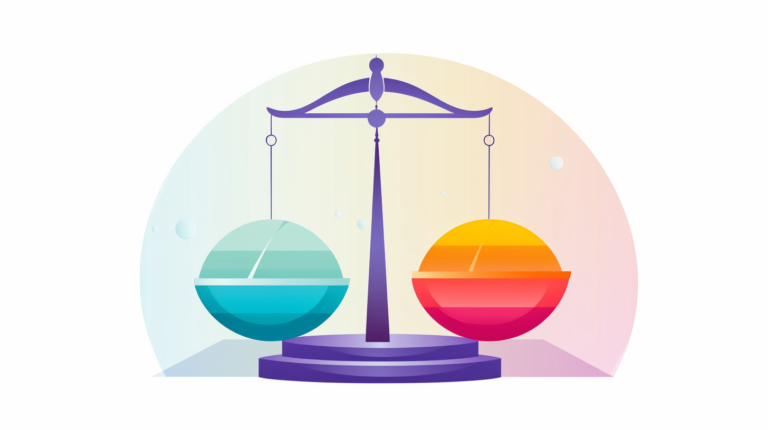The Impact Of Debt On Mental Health And Well-being

Key Takeaways
- Debt causes stress and other mental health problems.
- Some age groups feel these effects more than others.
- Your mind can change how you deal with money.
- There are ways to get help and make your life better.
The Connection Between Debt and Mental Health
Money worries can make you feel sick. A big debt can lead to stress, depression and even hurt our sleep. This is not just about feeling bad. It has real effects on our health. It gives us headaches and makes it hard for us to concentrate. Having a lot of debt also bumps up the risk of mental health problems like anxiety and stress. In fact, people with debt are three times as likely to suffer from these issues. So, when we talk about money management, we’re actually talking about taking care of our bodies too!Who is Most Affected by Debt-Related Mental Health Issues?
 People from different age groups face debt issues. But research shows that some are hit harder by these problems than others. Members of Generation X, those born between 1946 and 1964, have a lot of debt. On average, a person in this group has $36,000 in personal debt not counting home loans. Millennials also struggle with money woes. The cost of living has gone up for them. They also have to deal with student loan debt and the fallout from the Great Recession. On top of this, they feel stress linked to their debts which affects their mental health. Older adults face similar challenges too but in a different way. Baby boomers still carry mortgage debts along with car loans and credit card balances into old age. Americans over 70 saw their total amount owed go up by an amazing 543% from 1999 through 2019! This was mostly due to housing and car loans. Such high levels of borrowed money can create daily stress leading to mental health issues.
People from different age groups face debt issues. But research shows that some are hit harder by these problems than others. Members of Generation X, those born between 1946 and 1964, have a lot of debt. On average, a person in this group has $36,000 in personal debt not counting home loans. Millennials also struggle with money woes. The cost of living has gone up for them. They also have to deal with student loan debt and the fallout from the Great Recession. On top of this, they feel stress linked to their debts which affects their mental health. Older adults face similar challenges too but in a different way. Baby boomers still carry mortgage debts along with car loans and credit card balances into old age. Americans over 70 saw their total amount owed go up by an amazing 543% from 1999 through 2019! This was mostly due to housing and car loans. Such high levels of borrowed money can create daily stress leading to mental health issues.The Influence of Financial Health on Mental Well-being
Money issues can hurt your mental health. Debt brings stress and fear. It may lead to depression too. Not only for adults but also young ones like students in college with loan debt. When you are free from the bother of money, it helps you feel good inside. People who handle their finances well tend to be happier than those who don’t. They plan for the future and feel secure about tomorrow. This calm feeling is a big part of being mentally well as it eases anxiety and stress levels down lower than normal.How Mental Health Can Impact Financial Decisions
Our minds impact our money decisions. It can happen when we feel sad, scared or stressed. We might shop online to lift our spirits. This is called “retail therapy.” But it can lead to more debt and financial stress. If we are not feeling okay, it’s hard to make good money choices. When worried about a lot of debt, some people avoid thinking about it. They may miss paying bills on time or skip making a budget plan each month. The fear of not having enough money may stop us from saving for the future too.Understanding the Correlation Between Mental Health and Money
Money and mental health are deeply connected. A lot of people feel stress about money. This doesn’t just hurt your wallet, it hurts your mind too. 56% of Americans have felt bad because of debt before COVID-19 even started. Too much worry over money can make you feel down or nervous all the time. It is not just adults who face this problem. Young people like millennials also deal with debt stress from student loans and high costs of living due to the Great Recession’s effects. If you earn less, you often feel more upset. People with low income have higher chances of feeling depressed or trying to harm themselves than those who earn more. Yes, being in debt can cause problems for your mind and body both! It makes us three times more likely to be stressed, anxious or depressed! Losing sleep is common too if you are always thinking about how much money you owe! Still, we should remember that there is help out there! You do not have to deal with this alone; others understand what it’s like.Negative Emotional Responses to Debt
 The weight of debt often gives rise to a plethora of negative emotional responses including denial, stress, anxiety, anger and depression. Uncover more about how these emotions are intertwined with your financial obligations and gain insights on how to effectively manage them in the subsequent sections.
The weight of debt often gives rise to a plethora of negative emotional responses including denial, stress, anxiety, anger and depression. Uncover more about how these emotions are intertwined with your financial obligations and gain insights on how to effectively manage them in the subsequent sections.Denial
Debt can make people feel stuck. They may pretend it’s not there, even when bills pile up. This is denial. It keeps us from facing the truth about our money problems. Denial of debt is harmful to our minds and bodies. You might lose sleep or get headaches if you avoid your debts. Families may put off plans like having kids or buying homes because they are in denial about their debt issues. Debt denial affects more than just one person; it hurts whole families and communities, too! Especially those who do not have a lot of money. Ignoring debt does not make it go away, rather it makes things worse over time.Stress
Money trouble puts a lot of stress on us. It is not easy to deal with debt. We start feeling bad all over our bodies. Our heads ache, and we can’t sleep well. Our hearts feel heavy, and we lose focus. All these happen because of stress from debt. Debt also makes us sad and worried more often than usual. In fact, people who owe money are three times as likely to feel this way.Anxiety
Debt can make you feel scared. This is called anxiety. A lot of people who owe money have this feeling. They worry about how they will pay back the cash. They are nervous all the time because of their debt stress. It is hard for them to sit still or relax. Their mind is always racing with thoughts about their financial challenges. The more money they owe, the higher their anxiety level may be. This fear can stop them from making good choices and it affects every part of their life, not just their finances.Anger
Debt can make you very angry. This anger is a negative feeling towards your financial state. You may feel enraged with yourself for getting into debt. Or, you might be angry at the world for not giving you better chances. Anger about debt can end up hurting your mental health, too. It’s best to deal with this anger properly and find good ways to manage your money and pay off what you owe.Depression
Depression can sneak in when you have a lot of debt. It’s a heavy feeling that makes everything in life seem hard. Even getting out of bed can become tough. Over time, this depression can hurt your job performance and focus. You might lose your job or find it hard to get a new one if you are out of work. This only makes the money problems worse. Having little income often leads to more debt which fuels even more depression. It becomes a cycle that is hard to break free from without help.Physical Health Implications of Debt
Debt can hurt your body. It can lead to sleep problems and headaches. Some people eat too much or too little when stressed about money. Nervous habits like nail biting may also start to show up. These are all signs of the toll debt takes on physical health. Having a lot of debt can impact your everyday life, not just your bank account. People with high levels of financial stress often find it hard to focus at work or school due to their worries about money. This lack of focus could lead to job loss, making it harder for them to pay off their loans.The Specific Impact of Debt on Different Age Groups
Debt affects individuals differently across different age groups; young adults may grapple with student loan debt while older adults might struggle with medical or mortgage debts, each group experiencing unique financial stressors and mental health implications.Young Adults
Money struggles are a big deal for young adults. They often face student loan debt, which can lead to mental health issues. In fact, 81% of those aged 18-24 say their mental health suffers because of money worries and debt. Their peace of mind also takes a hit because they have high stress levels from these problems. Relationships suffer as well with fights over money even causing some couples to get divorced. So, it’s clear that too much debt can make life real tough for young adults in more ways than one.Older Adults
 Older adults get hit hard by debt. Many over 70 face high debts due to home and car loans. They also have less mortgage debt on average than younger people. But they still owe a lot of money. The Baby Boomers, who are older now, owe a lot on credit cards too. This shows how the problem of debt is big in this age group as well. Too much debt can make them stressed out or sad, which hurts their mental health badly. In dire cases, it can even push some to take their own lives. To deal with such stress from owing money and its impact on mind health, older adults need help. They may talk to others for support or meet with doctors or mental health pros about their issues related these points mentioned above. Some may seek ways to get rid of longer term debts if they have long-term sicknesses or disabilities.
Older adults get hit hard by debt. Many over 70 face high debts due to home and car loans. They also have less mortgage debt on average than younger people. But they still owe a lot of money. The Baby Boomers, who are older now, owe a lot on credit cards too. This shows how the problem of debt is big in this age group as well. Too much debt can make them stressed out or sad, which hurts their mental health badly. In dire cases, it can even push some to take their own lives. To deal with such stress from owing money and its impact on mind health, older adults need help. They may talk to others for support or meet with doctors or mental health pros about their issues related these points mentioned above. Some may seek ways to get rid of longer term debts if they have long-term sicknesses or disabilities.Coping Strategies for Financial Stress
 Navigating through financial stress demands adopting effective coping strategies, such as devising a realistic budget, prioritizing and tackling debts head-on, building an emergency fund for unforeseen circumstances, and seeking professional help when needed. Incorporate self-care habits into your routine to protect your mental well-being while handling monetary issues. Remember that it’s okay to reach out; numerous resources exist for debt and mental health management from credit counseling services to mental health professionals.
Navigating through financial stress demands adopting effective coping strategies, such as devising a realistic budget, prioritizing and tackling debts head-on, building an emergency fund for unforeseen circumstances, and seeking professional help when needed. Incorporate self-care habits into your routine to protect your mental well-being while handling monetary issues. Remember that it’s okay to reach out; numerous resources exist for debt and mental health management from credit counseling services to mental health professionals.Facing Your Debt and Fears
I know it’s hard to take the first step. I also felt scared when I needed to face my debt. But, you too can do it! First, look at how much you owe. Then, make a plan to pay your debts. It sounds simple and truth be told it is not easy but it is possible. Facing debt can feel like a big mountain in front of you. Yet, each step brings you closer to the top. And guess what? The view from there is worth it! You will feel less stress and more peace with every payment made towards getting rid of that debt for good!Prioritizing Financial Decisions
Knowing how to sort out your money matters can take a load off your mind. Decide what needs to be paid first. This might be rent, car loans or credit card debt. Cutting out things you don’t need can help too. Being smart with money can really help lower stress and make life feel more in control!Seeking Help When Needed
If you feel stuck, it’s okay to ask for help. We often think we can solve all problems by ourselves. But dealing with debt and its effects on our minds is a tough battle. It might be more than we can handle alone. Doctors, therapists, or financial advisors can provide the support you need. They are experts in their fields and want to help people just like us! A financial advisor will guide us through our money issues step by step while a therapist will help manage stress caused by debt. Let’s not forget that people in debt are three times as likely to have mental health problems like stress and depression! No one should face these troubles alone, so reaching out for professional aid is a smart move when dealing with these matters.Professional Resources for Debt and Mental Health Management
Here is where you can find help when debt feels too big to handle. You’re not alone, and it’s okay to ask for some aid. 1. Talk with a credit counselor: These pros know all about debt. They give you tips on how to pay what you owe faster. 2. Join Debtors Anonymous: This group helps people who feel stuck in their debt. 3. Reach out to the National Foundation for Credit Counseling (NFCC): They offer free or low-cost services for folks needing help with money matters. 4. Visit the Financial Psychology Center: Their team can show you ways to deal with stress from owing money. 5.Community Mental Health Centers: These places have experts that help people cope with anxiety and depression linked to debt. 6.Employee Assistance Programs (EAPs): Some employers provide this program which offers short-term counseling and referrals for longer-term therapy if needed. 7.Federal Trade Commission (FTC) — The FTC provides resources on dealing with debt including your rights as a consumer and how to choose a credit counselor. 8.United States Trustee Program — Part of the Department of Justice, this program approves organizations offering bankruptcy counseling and debtor education. Please reach out today if you need any help at all!How to Manage Financial Stress and Debt
Managing financial stress and debt can be tough. But don’t worry, there are ways to get control over them:- Seek mental health counseling: It’s important to take care of your mind. If debt is causing you worry, talk to a pro about it.
- Make an action plan: Lay out all your debts. Decide which ones need to be paid first.
- Fix your credit score: Paying bills on time and not getting new loans can help improve your credit score.
- Face up to debt: You have to admit that there is a problem before you can fix it.
- Look at how you spend money: Cut back on things that are not needs. This will help you save money.
- Set a budget: Knowing exactly what you make and what you owe makes it easier to manage money.
- Take care of yourself: Eating well, sleeping enough and getting exercise helps both the mind and body deal with stress better.
The Role of Mental Health and Financial Professionals
 Mental health and financial professionals help a lot. They work hard to lessen the burden of debt on mental health. Here is what they do:. – Mental health pros give you ways to cope with stress. – They can treat anxiety or depression related to debt. – Financial advisors offer plans to manage your money better. – These experts can make a plan to pay off your debt. – You get tips on how to save money from them too. – Sometimes, they can talk with banks or loan companies for you. Remember, it’s okay if you need this kind of help!
Mental health and financial professionals help a lot. They work hard to lessen the burden of debt on mental health. Here is what they do:. – Mental health pros give you ways to cope with stress. – They can treat anxiety or depression related to debt. – Financial advisors offer plans to manage your money better. – These experts can make a plan to pay off your debt. – You get tips on how to save money from them too. – Sometimes, they can talk with banks or loan companies for you. Remember, it’s okay if you need this kind of help!Debt and Mental Health Statistics
Looking at the data, it’s clear that the impact of debt on mental health is both significant and widespread. Here are some key statistics that highlight the relationship: 1. A staggering 56% of Americans reported that debt has negatively influenced their lives. 2. Generation X, on average, carries a personal debt of $36,000, excluding mortgages. This is the highest among all generations. 3. Millennials are not immune, either. They grapple with the increased cost of living, student loan debt, and the financial aftermath of the Great Recession. 4. Overwhelming debt does more than just drain bank accounts. It is often associated with stress, depression, and even elevated suicide rates. 5. Those in debt are three times likelier to contemplate taking their own lives compared to those without financial struggles. 6. Debt-triggered stress can lead to anxiety, depression, headaches, sleeping disturbances, and trouble focusing. 7. The societal effects of family debt are profound. Families in debt often delay critical milestones like starting a family or buying a home. They are also less able to contribute to retirement funds. 8. Income inequality plays a significant role, too. Populations with low income are more prone to depression, suicidal tendencies, and higher substance abuse rates. This supports the direct correlation between mental health issues and financial struggle. These numbers provide a sobering perspective on the intersecting worlds of finances and mental health. They make it clear that addressing debt is not just about regaining financial stability. It’s also about safeguarding our mental health and overall well-being.Does a High Debt-to-Income Ratio Negatively Affect Mental Health and Well-being?
A high debt-to-income ratio can indeed negatively impact mental health and well-being. Individuals burdened by excessive debt may experience heightened stress, anxiety, and depression, affecting their overall quality of life. Maintaining a healthy debt-to-income ratio for loans allows for greater financial stability, reducing the psychological toll that overwhelming debt can take on individuals.






